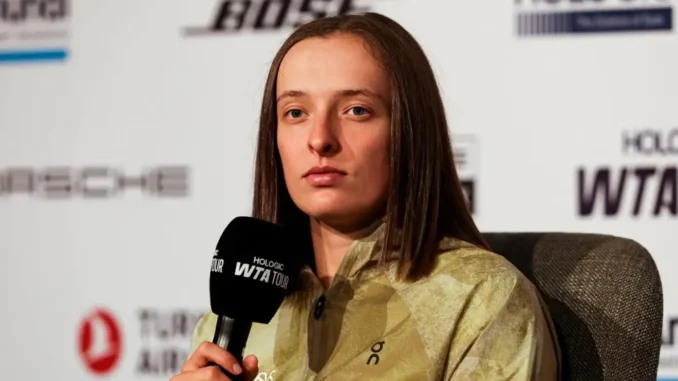
In a stunning upset that reverberated through the tennis world, Iga Swiatek, the reigning queen of clay, suffered a humbling 6-1, 6-1 defeat to Coco Gauff in the Madrid Open semi-finals on May 1, 2025. The 64-minute thrashing at the Caja Magica, Swiatek’s worst loss on clay since a 2019 Roland Garros rout by Simona Halep, snapped her 10-match winning streak in Madrid and cost her a chance to defend her title. As the dust settles, the world No. 2 candidly admitted to lacking a backup strategy, revealing a vulnerability that could reshape her approach as she heads toward the Italian Open and Roland Garros.
Swiatek, a five-time Grand Slam champion with an 88% career win rate on clay, arrived in Madrid as a heavy favorite. Her journey to the semi-finals was far from smooth, requiring comebacks against Alexandra Eala and Diana Shnaider, and a gritty recovery from a 6-0 first-set loss to Madison Keys in the quarter-finals. “Honestly, it was one of the weirdest matches I’ve ever played,” she said of her Keys victory, a testament to her resilience. Yet, against Gauff, that tenacity faltered. The 21-year-old American, riding confidence from recent hard-court wins over Swiatek, dominated with seven aces, 90% first-serve points, and just eight unforced errors, leaving Swiatek reeling with 21 forehand miscues. “I wasn’t ready to play back the shots with heaviness,” Swiatek confessed post-match, her frustration evident as she wiped tears during a second-set changeover.
The defeat exposed a rare tactical lapse for Swiatek, who admitted to struggling without a “plan B.” “I didn’t really have any other plan than just playing my game,” she said, reflecting on her inability to counter Gauff’s aggressive, high-margin play. Madrid’s high-altitude conditions, which quicken ball speed, compounded her woes, as she struggled to generate her trademark topspin. “I should have been more composed and played with more spin,” she added, pinpointing a missed opportunity to adapt. The loss, which saw her win just 26 points to Gauff’s 57, marks her sixth semi-final exit in her last six WTA Tour events, a stark contrast to her 2024 Roland Garros triumph.
The ramifications extend beyond the court. Swiatek’s failure to reach the Madrid final cost her 610 ranking points, dropping her total to 6,773 and putting her No. 2 ranking at risk. Gauff, with a 530-point gain, now sits at 6,603 points and could overtake Swiatek with a title win against Aryna Sabalenka or Elina Svitolina. “I felt great out here on the court today,” Gauff said, her third straight victory over Swiatek signaling a shift in their rivalry, now 11-4 in the Pole’s favor. Swiatek’s potential slide to No. 3—her lowest ranking since March 2022—adds pressure as she defends 1,000 points at the upcoming Italian Open and 2,000 at Roland Garros.
Swiatek’s 2025 has been a battle against adversity, from a doping controversy involving trimetazidine—resolved with a one-month suspension—to losses against Ostapenko and Eala. “It was the worst of my life,” she said of the doping ordeal, which cost her the No. 1 spot to Sabalenka. Yet, her resolve remains unbroken. “Hopefully one day it’s going to click,” she vowed, eyeing Rome as a chance to reset. Her team, led by coach Tomasz Wiktorowski, is already analyzing the Gauff match to develop contingency strategies, with Swiatek emphasizing the need to “find another way” when her primary game falters.
As the clay season intensifies, Swiatek’s Madrid setback is a wake-up call. With Gauff’s emergence and Sabalenka’s 3,925-point lead at No. 1, the WTA landscape is shifting. Swiatek’s ability to adapt—perhaps by incorporating the spin-heavy tactics she lamented neglecting—will be crucial. For now, the 23-year-old is focused on Rome, where she’s a two-time champion. “I need to be ready for anything,” she said, her determination undimmed. The tennis world watches eagerly to see if Swiatek can reclaim her clay-court throne or if Gauff’s rise heralds a new era.
Leave a Reply